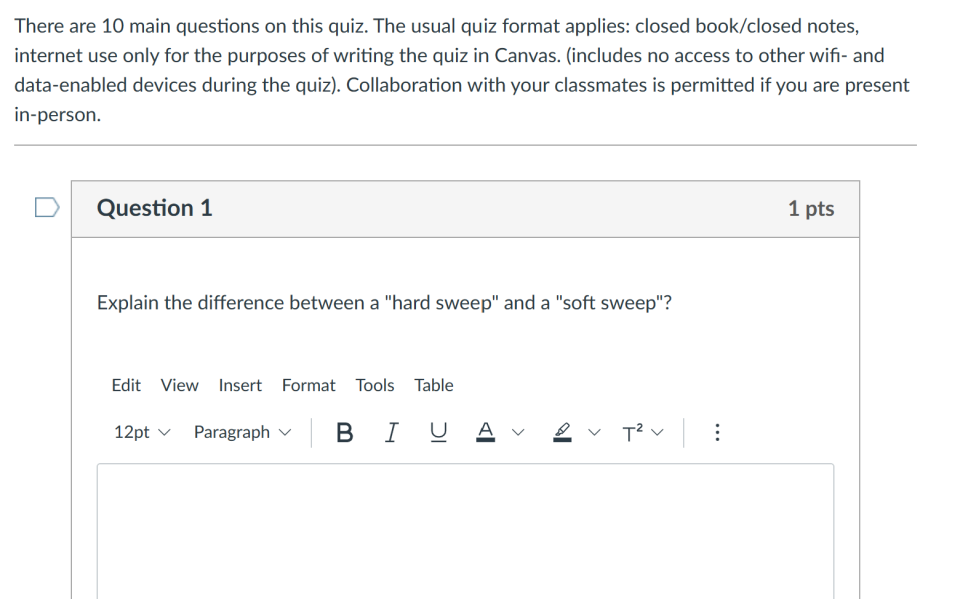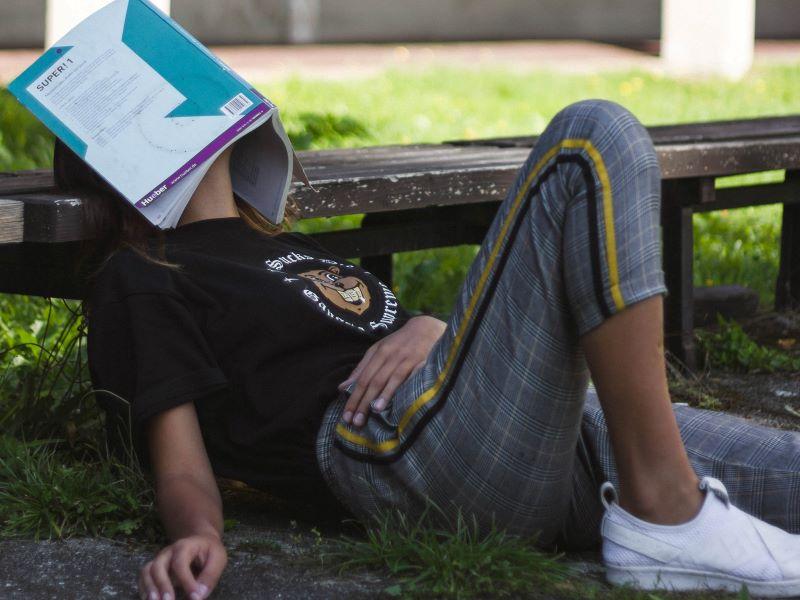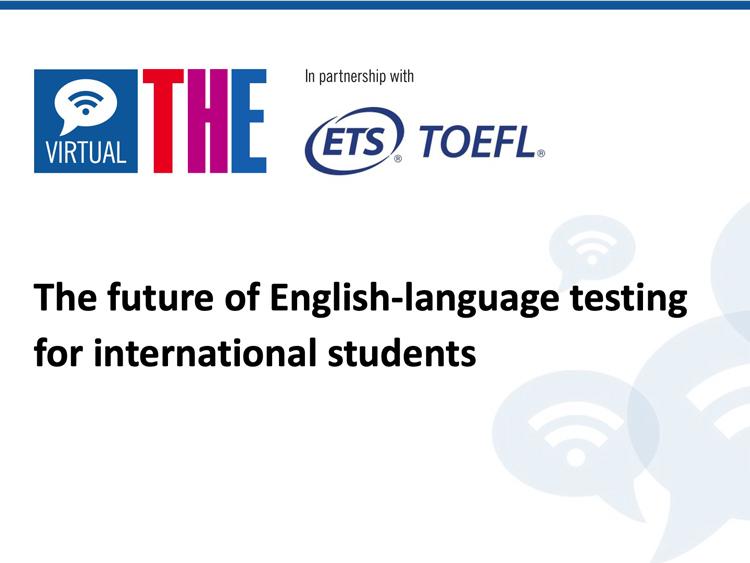From my colleagues in post-pandemic classrooms, I hear two common concerns: students are no longer showing up to classes, and they don’t know how to prepare for assessments. I’ve found a way to subvert these trends and foster a culture of cooperation in my class by using community quizzes.
What are community quizzes?
Community quizzes are weekly in-class quizzes where, instead of forbidding students from talking or exchanging answers, I encourage them to do exactly that. The students are free to move around the room and discuss the quiz with as many classmates as they want to. The only restriction is that they are not permitted to use notes or other resources – it is a closed-book quiz. Quizzes are administered online (via Canvas) and are timed for 30 minutes, with a variety of question formats.
Demonstrate the value of collaboration
Student expectations about attending class have changed in the wake of the pandemic. If they can access content online, why show up in person? My course includes three in-person classes per week, and the day that the community quiz takes place has by far the best attendance. Instead of 40 or 50 students, the class swells to over 100, which is around 90 per cent attendance. This isn’t because I mandate them to come, but because they find value in doing so.
- Resource collection: The post-pandemic university: how to serve the Covid generation
- What is student engagement?
- It’s not you, it’s me: taking responsibility for student engagement and interaction
On quiz day, the traditional lecture layout, with me lecturing at the front to an audience of seated students, is transformed into a highly charged and dynamic space. Students are moving around, debating with each other and discussing the materials in a lively and critical way. They ask each other about their answers and try to uncover which is most likely to be the correct response and why. In most cases, a student will take over the podium and lead the whole class through the quiz after they have spent some time already working together.

Students don’t have to attend in-class to complete the quiz – the remote or online option is afforded to them. In fact, it would be much easier for them to break the parameters of the closed-book restriction if they took it from home. But they come because they understand the benefit of collaborating with their peers.
Information as an active process
Another shift, often linked to the pandemic, is an increased reliance on memorisation. We are seeing students treat information as something that they commit to memory and they don’t grapple with or apply the concepts in any meaningful way. They are also prone to procrastination and can quickly fall behind.
Community quizzes allow students to consistently engage with content in ways that help them to understand and learn in a deeper way than memorisation alone. The lively debates that naturally emerge in this space force students to question not only their perception of the material, but also identify their own blind spots as well as the blind spots of their peers. By working together towards a solution, they are teaching each other and themselves and making the material their own. It also gets them working on communication, interpersonal skills and even some leadership, which is something that doesn’t happen with a typical quiz.
Reimagining learning
This is a fairly simple change to make in allowing students to work together on quizzes. Any format is suitable: online or on paper. It can be done in any classroom setting – I am now doing it in my lab courses. You can consider letting people work alone at first and then join forces after they have individually had a chance at the questions. I would recommend establishing the format early and encouraging students to get moving around the room. I think it works better as closed-book format, which gives students more impetus to prepare and a more personal stake in contributing to the group. I always tell students what content will be featured on the quiz.
Community quizzes are just one strategy I use in my class to make learning about cooperation instead of competition. As an instructor, this can be uncomfortable at times, because it means giving up space to students, watching as they occasionally go down the wrong route and knowing that I have to let them go there. Of course, the highs and lows are always better together. Once students get a taste of this community quiz style, they really do not want to do quizzes any other way.
More than any particular concepts, what I want to educate them about is that learning together can be a richer experience than doing it alone. Connecting with each other was diminished during the pandemic and through the shift to online teaching and learning formats, but this is what I am trying to bring back. That is the path forward in health sciences and higher learning.
Mark Lechner is a lecturer in health sciences at Simon Fraser University.
If you would like advice and insight from academics and university staff delivered direct to your inbox each week, sign up for the Campus newsletter.




comment